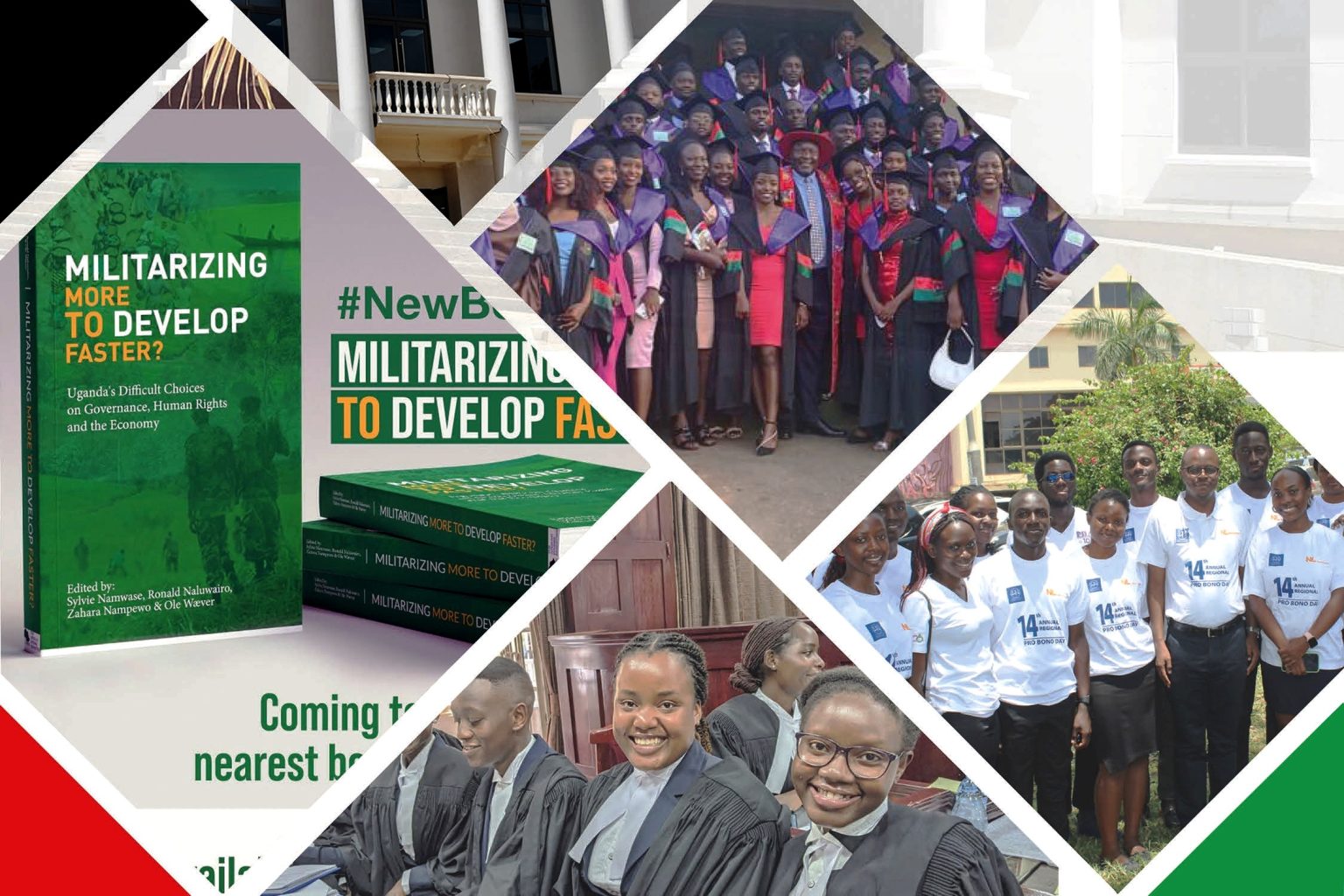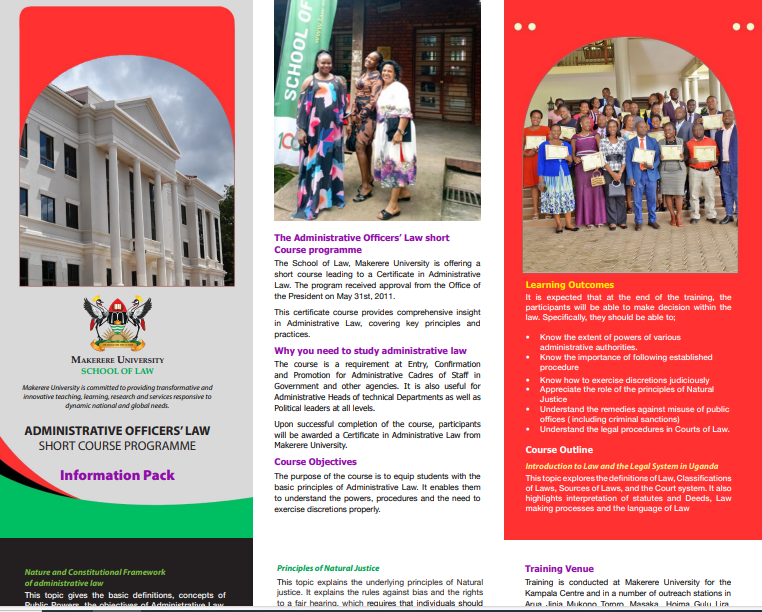A Report On The 10th Inter-University Human Rights Competition (2017)
INTRODUCTION
The Inter-University Human Rights Debate is an annual competition that is organized by Foundation for Human Rights Initiative (FHRI). Every year different universities bid to be given the opportunity to host the event. Each of the participating universities is given a research topic on which to present on during the competition and on every edition of the competitions, Makerere University is represented by students under the Makerere University Human Rights Association (MUHRA).
OBJECTIVES OF THE COMPETITITONS
To stimulate research in the different areas of human rights
To debate and engage university students on current human rights issues in order to inculcate a human rights culture and approach into students
To develop analytical skills in the students
To develop human rights expertise and meet the country’s need
To empower students with vital advocacy skills in relation to human rights
ABOUT THE COMPETITIONS
On Friday 10th and Saturday 11th March 2017 we students of Makerere University, under the umbrella of Makerere University Human Rights Association (MUHRA) participated in the 10th Inter-University Human Rights Competition which was organized by Foundation for Human Rights Initiative (FHRI) and hosted by Uganda Martyrs University Nkozi. The theme of the competition was “Our Rights, Our Freedoms. Raising the Bar.”
We arrived at the event on Friday 10th March at 8:30am and we registered our team’s participation. We were later on welcomed with breakfast and later on led to our designated sitting places. The opening session began at 10:30am with a speech from the President, University Human Rights Club who was followed by the Dean of students, the Vice Chancellor and then Chairperson Council, all from Uganda Martyrs University Nkozi. The Executive Director, Foundation for Human Rights Initiative Mr. Livingston Ssewanyana then invited the Chief Guest of the day Hon. Justice Bart Katurebe, Chief Justice of the Republic of Uganda.
The presentations from the 30 participating institutions kicked off at 11:15am. During the competition, participants discussed and debated on various human rights issues including electoral democracy, the role of media in democratization, the death penalty, land grabbing, case backlog in the judiciary, gender based violence, human rights based approach to poverty eradication. Our research paper was presented by Jjumba Lawrence a fourth year law Student at about 2:30 pm. The topic of our research paper was “African countries like Uganda, Kenya, Burundi, South Africa, have threatened pullouts of the ICC. How consistent is the decision with the doctrine of state sovereignty? Discuss.”
Day one ended at around 5:00pm, we had dinner at 7:00pm then later on proceeded to the residence that had been reserved for us for our accommodation. On day two, we had breakfast at 9:00am. Presentations for the other institutions continued till 3:00pm.
The closing session for the event began at 3:00pm with closing remarks made by Ms.Sophie Racine-Component Manager, Rights, Peace and Justice, DGF. Then later on comments from the Judges/Expert Panel who also announced the winners.
Makerere University Kampala was declared as the overall winner of the 10th Inter-University Human Rights Competitions with 85.4% followed by Uganda Pentecostal University in second place with 77.4% and Uganda Christian University in third place with 76.4%. Makerere University was able to successfully defend its title it had won during the 9th Inter-University Human Rights Competitions held in Ndejje University in 2016. Makerere University’s Jjumba Lawrence was also awarded as the best presenter of the competitions.
THE BENEFITS OF THE DEBATE
We were able to learn more about the Human Rights philosophy. A number of universities presented their research papers on various human rights related topics and this equipped us with new knowledge about the aspect of human rights for example some topics like the death penalty ,electoral democracy.
The debate also empowered us with advocacy skills. Most of the presenters of the event presented their research papers in a way of advocating for the human rights of various groups of people especially about the death penalty issue.
Empowering of our analytical skills. The competitions involved a lot of analysis on various issues.
It promoted team work amongst the members. Every research topic had to be handled by different human rights associations from various universities. As an association, we benefited from working together as a team.
We had an opportunity to listen to the chief justice’s speech. He called upon upon students to uphold human rights not for themselves but for others. He said, “be the messengers of hope for this country, go out there and fight for our rights in an inclusive manner to help us actualize an equitable society”.
CHALLENGES AT THE COMPETITONS
We experienced no major challenges, the organization for the debate was good and conducive.
RECOMMENDATIONS
We recommend that the university should also add on the support offered by PILAC to the association so as for the association to function effectively in various activities.
We also recommend that Makerere University as a usual participant in the competitions should bid to host some of the future editions of the competitions so that the rest of students in the university are also exposed to the aspect of human rights.
CONCLUSION
We would like to take this opportunity to thank our dear Patron Madame Atim Patricia for the guidance and assistance she rendered to us. We would also like to thank the Public Interest Law Clinic (PILAC) at the School of Law for both the continued financial and moral support given to us to become the Champions of both the 9th and the 10th Inter-University Human Rights Debate competitions held in years 2016 and 2017. Lastly we would also like to thank Foundations for Human Rights Initiative (FHRI) for the platform it has given us to empower our vital advocacy skills, understanding the Human Rights Philosophy and developing our analytical skills.



